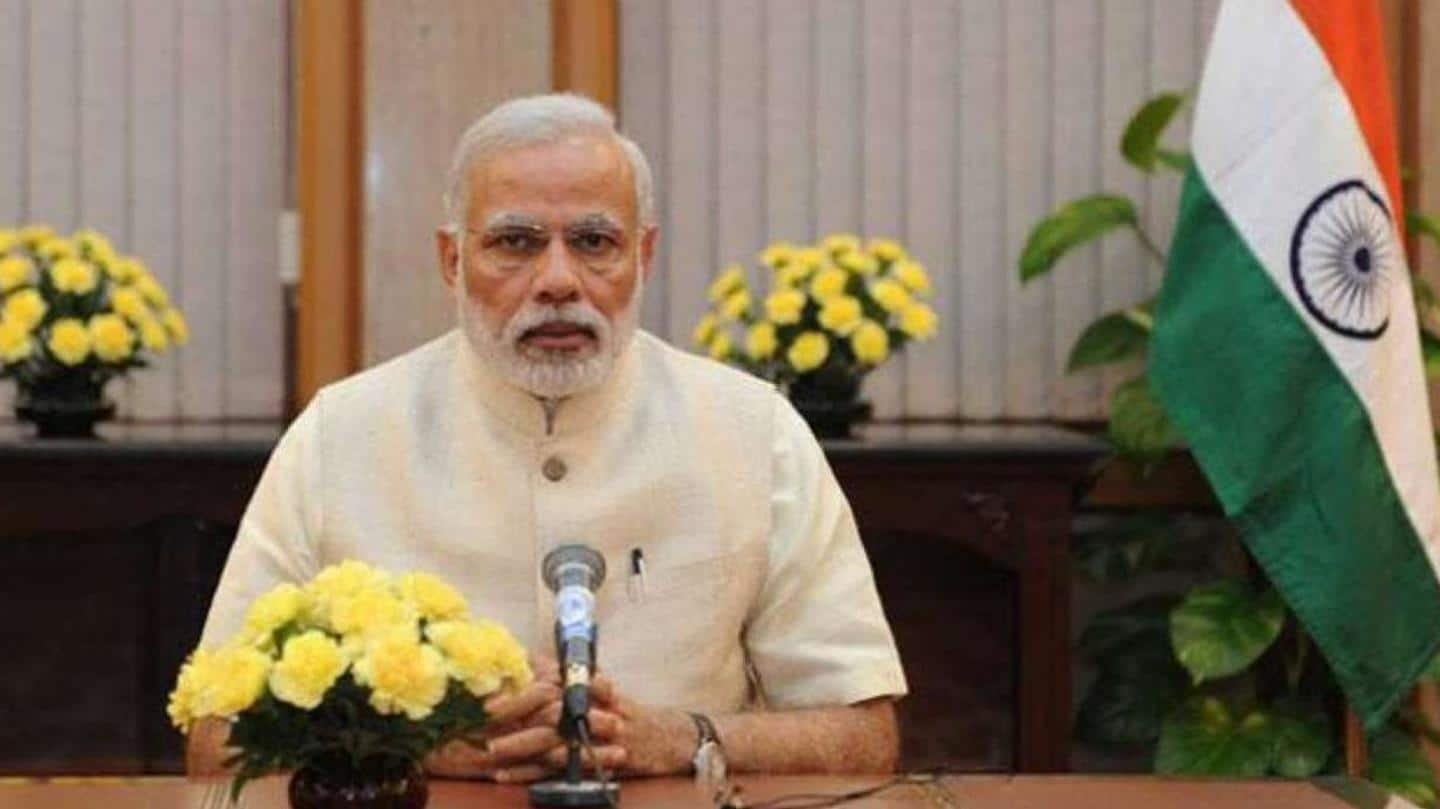
#MannkiBaat: Farm laws gave farmers new rights, opportunities, says Modi
What's the story
Prime Minister Narendra Modi on Sunday addressed the 71st edition of his monthly radio show 'Mann ki Baat'.
In his address, Modi spoke about the central government's three agriculture laws, that have sparked intense protests by farmers.
Ignoring the protests, the PM said that the agricultural reforms have given farmers new rights and opportunities.
Here's more on what he said.
Information
Agri reforms broke farmers' shackles, says Modi
"The Parliament has passed farm reforms after rigorous brainstorming," Modi said, "These reforms have not only broken the shackles of farmers, but it has also given them new rights and opportunities. These rights have started mitigating their problems very quickly."
Farm laws
Modi illustrated how agri reforms helped Maharashtra farmer
Modi cited the example of one Jitendra Bhoiji, a maize farmer from Maharashtra's Dhule.
The PM said that Bhoiji had agreed to sell his produce to traders for Rs. 3.32 lakh. Although he received an advance of Rs. 25,000, months passed, but Bhoiji did not receive the balance, Modi said.
The PM said the new laws then came to his aid.
Information
'Mandatory to pay farmer within 3 days under new law'
"Under the new law, it is mandatory to pay farmers within three days of purchasing the produce. The farmer can lodge a complaint upon non-payment," Modi said, adding that the regional Sub-Divisional Magistrate (SDM) is required to address the complaint within a month.
Stubble burning
Modi promoted use of straw baler amid stubble burning menace
Modi also spoke about a resident of Haryana's Kaithal, Virendra Yadav, who uses a straw baler machine to profit from stubble.
Notably, with no other solution available, farmers often burn the stubble, leading to a spike in pollution levels in the winter months.
However, with the straw baler machine, Yadav creates bales of straw, which he sells to agro energy plants and paper mills.
Information
'Yadav earned Rs. 50 lakh profit from stubble'
Yadav has done a business of over Rs. 1.5 crore in two years, earning Rs. 50 lakh in profit, Modi said. The PM urged the youth to visit nearby villages and make farmers aware of modern farming and recent farm reforms.
Coronavirus
Any laxity regarding COVID-19 still dangerous: Modi
Modi recalled that it is about to be a year since the coronavirus pandemic started late last year.
"Any kind of laxity regarding COVID-19 is still dangerous," he cautioned.
As of Sunday morning, India reported 93,92,920 COVID-19 cases with 41,810 new infections in the past 24 hours.
The total cases include 4,53,956 active cases and 88,02,267 recoveries. The death toll is 1,36,696.
Sikh
Modi remembered Guru Nanak Dev ahead of Prakash Diwas
Ahead of Guru Nanak Jayanti on Monday, Modi remembered the founder of Sikhism saying, "From Vancouver to Wellington, Singapore to South Africa, his message reverberates everywhere."
"We've all seen how the Sikh community has continued his tradition of feeding people amid the pandemic," Modi said.
He also highlighted that it has been a year since the opening of the Kartarpur Sahib Corridor last November.
Culture
Modi stresses importance of technology in promoting Indian culture
Modi spoke at length about Indian culture and heritage and the importance of technology to further its spread.
He spoke about Jonas Masetti, a Brazilian man who runs an organization called 'Vishvavidya' near Rio de Janeiro.
Masetti studied Indian culture, particularly Vedanta, and now uses online programs and podcasts to teach others through his free open courses, Modi said.
Culture
National Museum to introduce 10 virtual galleries
Modi further said that the National Museum in India is working on a project to introduce 10 virtual galleries.
"Now, you will be able to visit the virtual galleries of the National Museum from the comfort of your homes," he said, highlighting the importance of technology.
He also noted that the Ajanta Caves were recently included among the collection at Norway's Arctic World Archive.
Education
Modi urged universities to build strong alumni networks
Modi also spoke about the importance of a strong alumni network at educational institutions.
Former students often play an important role in an institution's technology upgradation, building construction, starting awards or scholarships, skill development programs, etc., he observed.
Modi urged people to reconnect with their alma mater and asked institutes to work on innovative methods of alumni engagement.
Information
'NEP accomplishing Sri Aurobindo's ideals for Indian education'
Remembering philosopher Sri Aurobindo ahead of his death anniversary on December 5, Modi added, "Whatever Shri Aurobindo had said about national education at the time, India is accomplishing that today with our new National Education Policy (NEP)."